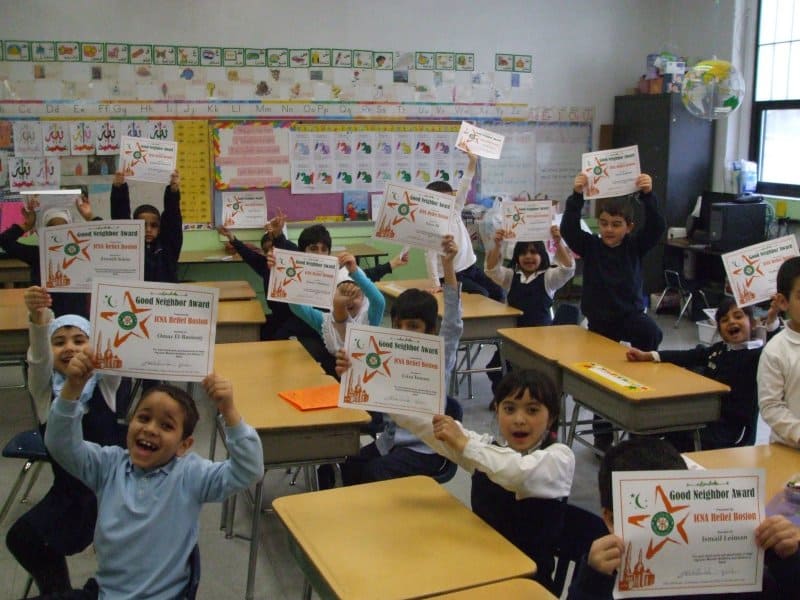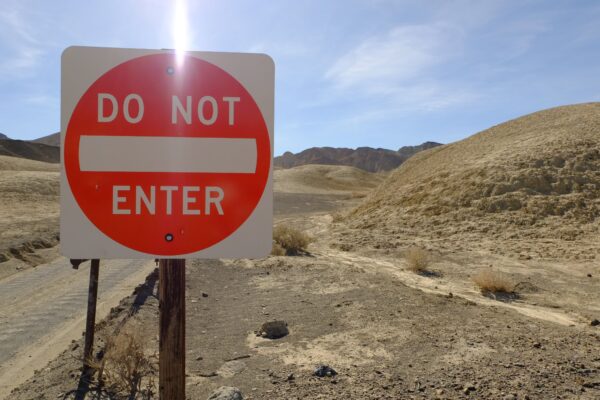Islamic School or Secular School? Islamic Education | IFG

5 min read
Published:
Updated:

Mohsin Patel
Co-founder
Islamic school or secular school – which is right for my child?
At a recent talk that Ibrahim and I gave, a concerned mother offered up the question in the title. It was a very relevant question, but to be totally honest, I had not quite expanded my own views on it properly enough, and so I gave a relatively neutral response. It went something along the lines of acknowledging that Islamic schools are, probably for the first time, offering a real academic alternative to secular schools (see this as an example), but many secular schools will offer similar levels, and the really important thing is solid tarbiyyah in the home.
Since then, I have had to start thinking about education for my own children a bit more. Although my eldest is a mere 19 months old, the whole nursery search prompted me to think wider about what we might do when it comes to not just nurseries, but primary and secondary school. Will we opt to send him to an Islamic school in order that he can be somewhere which is an extension of home in the religious sense, or will we instead choose a secular education?
The case for Islamic schools
There was a time when parents sent their children to Islamic schools knowing full well that the academic side was not as great as other, secular schools; but the desire to embed good Islamic principles in the child led them to send that child to an Islamic school.
However, it seems we have progressed past that point now. There are plenty of academically good Islamic schools out there, and with the benefit of being an Islamic environment, it almost seems like a bit of a no-brainer to send your child to an Islamic school that performs well academically. The best of both worlds.
One parent I spoke to described his choice to send his child to an Islamic school as a ‘no risk’ option. He argued that whilst his children might end up fine going through the secular route, there was more of a risk of them being exposed to dangerous influences in a secular environment (presumably this stems from the idea that good Muslim children would not do drugs, alcohol, etc).
There is also the issue of identity: a Muslim child being told one thing in the home and another thing at school is potentially a confused child. An Islamic environment at school ensures consistency of message between school and home, resulting in a more confident identity.
The case for secular schools
The world is a big place. It is vital that we as Muslims are cognisant of the local culture and customs, in order that we can get along in as effective a manner as possible. This inevitably leads to tolerance and goodwill. As a child, growing up with the mix of races and religions that make up our communities makes us more aware of our surroundings and allows us to be a more integral part of that wider community.
Being a minority Muslim as part of a wider community within a school is also a good avenue to lead by example. At my son’s nursery, I am very conscious of the fact that we are probably one of the only, if not the only, Muslim parents that the staff come across. As such, it is an opportunity for us to break down many of the barriers that have unfortunately been created in society and promote a positive message of Islam. In the same way, your child might be the only Muslim that John and Paul at school come across – their dealings with your child will affect their impression of Islam and Muslims more strongly than anything they are told from external influences.
One of the concerns parents have over secular schools is that they leave the child open to concepts that are not Islamic, or negative influences like drugs and alcohol. In reality, however, this is an opportunity for parents to ensure that their tarbiyyah in the home means that their child is fully aware of the Islamic position on many modern-day issues whilst having the awareness and tolerance of the views that society in general holds. This is a matter of confidence of identity, and it is vital that we bring up children who can actually engage rather than hide away.
So what’s the verdict?
Whilst I personally sway to the secular school argument, I must confess that I am not staunch in that opinion. I think there are very good arguments both ways, but the secular route holds more water for me simply because of the climate in which we live.
We all aim to bring up children who go on to be good people and good role models for the deen. I feel that a crucial part of that is for them to actually engage with society at large. Of course, this is a prophetic concept and there is great wisdom in that; many came to Islam simply because of the role model that the Prophet (pbuh) was.
It is also important to consider the sort of inclusive society the Prophet (pbuh) himself wanted to encourage. For instance, he commanded Abu Dharr (r.a) to go back to his own people and invite them to Islam, resulting in many people accepting the message. Let us just reflect on this for a moment: he (pbuh) specifically tells Abu Dharr to back amongst his own people and use his knowledge and goodwill to the benefit of the deen and for the benefit of the people themselves in inviting them to the deen. This is an important lesson for us – how can we implement this in our own lives if we are totally devoid of interaction with non-Muslims?
Or consider the Prophet’s rationale when drawing up the Constitution of Madina. He used this opportunity not to subjugate non-Muslims, but rather to afford them rights and offer all of them the protection of Allah, whilst at the same time acknowledging, accepting, and formalising into a document the fact that the people of Madina had different religions and beliefs. It effectively gave the model of a modern-day society: one in which the ‘society’ is one, but the make-up of that society is very different. I would argue that the modern-day context is analogous, and we should be more alive to the political and social aspects of our interactions with non-Muslims, rather than the often headstrong, religious stance that is taken. That is not to say that religious considerations take a backseat, but other considerations and sensitivities must come into play.
Perhaps if we had as much concern for engaging with society and leading by example as we did building million-pound minarets, we wouldn’t find ourselves where we currently are.
Please leave your comments below – I really look forward to hearing people’s opinions!
Please remember to subscribe to our email list (box on the top right), and follow us on Facebook and Twitter.
Related Articles
View all
We are Khabib Nurmagomedov’s People: A Nation of Dreamers – IslamicFinanceGuru
31 May 2022 8 min read

Pandora Papers | Islam’s Approach to Tax Avoidance
31 May 2022 13 min read


